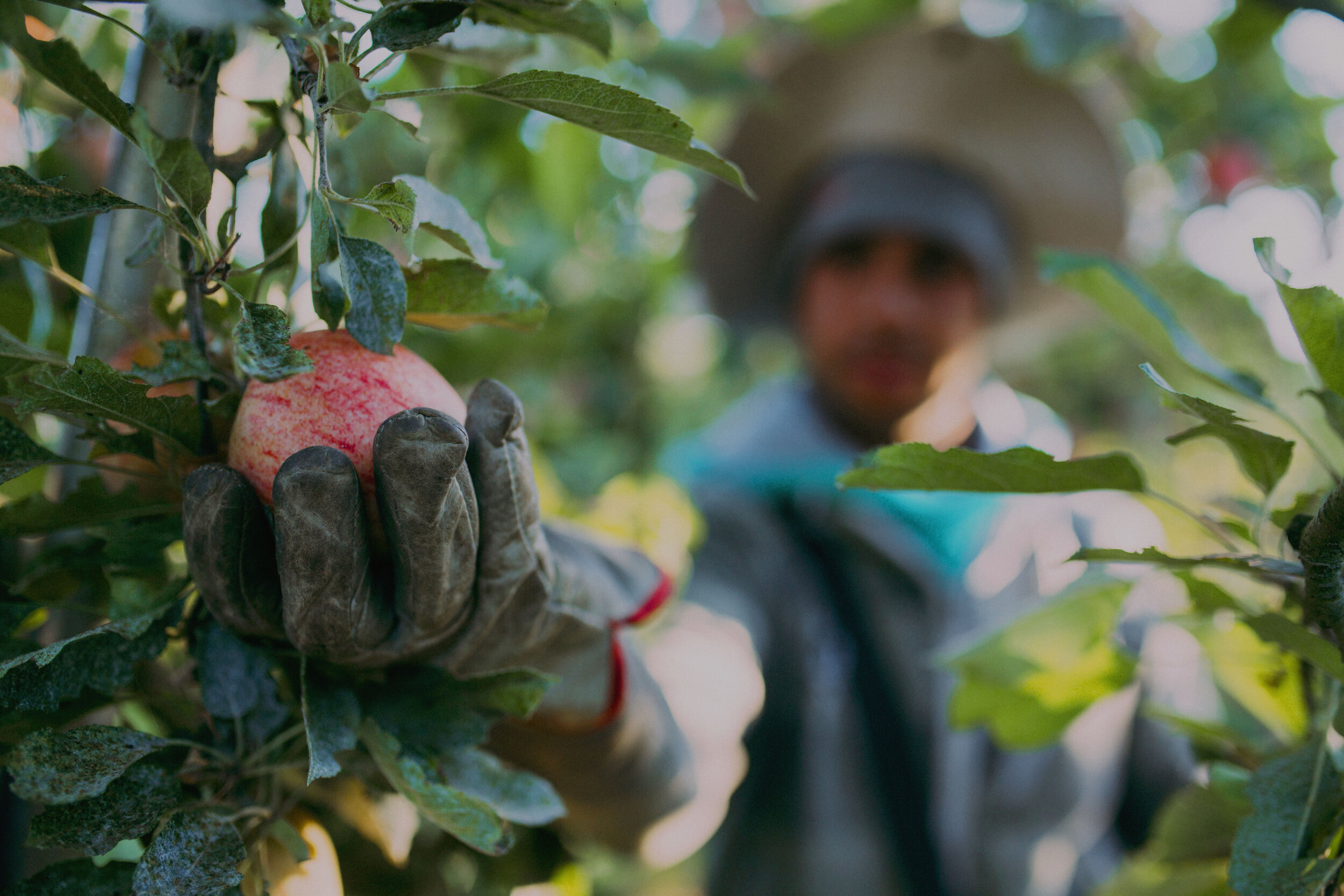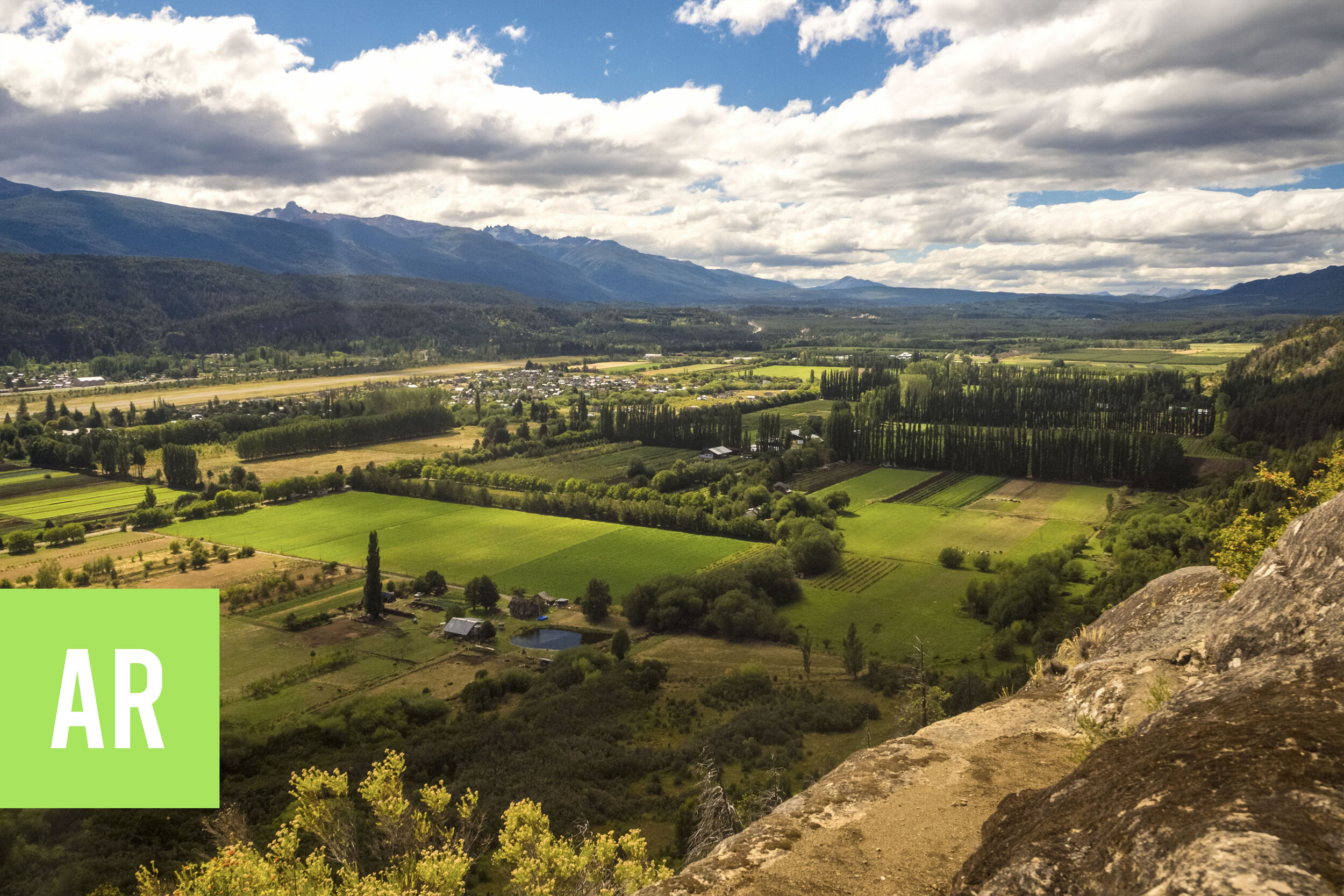
We follow the seasons, and focus on flavor.
At Viva Tierra Organic, we believe that fresh tastes best. We follow the seasons and the harvest to bring you the freshest, most flavorful organic fruit, all year long. Our organic growers are strategically located across the northern and southern hemispheres, giving us an unparalleled range of harvest dates to ensure that our fruit is in season, all season, every season.
Washington
Regional Centers
North Central WA — Orondo to Quincy
South Central WA — Yakima to the Columbia
Organics Grown
Apples / Pears / Stone Fruit
In North Central Washington, the fruit growing region surrounds the Wenatchee Valley, with the mighty Columbia River at its heart. Fed by the cool waters of the Columbia, this region has a shorter season, and a later harvest. Hot days and cool nights produce finely textured and extremely flavorful fruit.
South Central Washington is surrounded by gently rolling mountains, the wide Yakima Valley and the lower Columbia Basin. It is the largest apple producing region in Washington, and its rich volcanic soil is also perfectly suited for pears. The area’s longer growing season makes for an earlier harvest.
Oregon
Oregon encompasses many distinct growing regions. Onions thrive in the sandy loam soil of the Columbia Basin, where plentiful clean water, a long growing season, and abundant sunshine combine to create some of the most productive farms in the country.
In the more temperate central valleys, verdant orchards are supported by deep, fertile soils. Warm days and cool summer nights produce distinctively sweet, juicy pears.
California
Regional Centers
Central CA — Kingsburg, Fresno
Northern CA — Kelseyville, Cortland, Corning
Organics Grown
Apples / Pears / Onions
Stone Fruit / Figs
Central Valley California, the fertile valley running between California’s coastal mountains to the west, and the Sierra Nevada mountain range to the east, is well known for abundant agriculture. Warm springs and hot summers ripen the fruit in Central Valley orchards earlier than other growing regions. Deep wells and sandy soils create perfect conditions for onions.
On the Northern Coast of California, from the Sacramento River Delta to the north and west through the rolling valleys of the Coastal range, organic orchards thrive in the fertile soils and moderate year-round temperatures. Variations in soil type, elevation and climate create growing conditions for a multitude of different fruits.

Mexico
Mexico is a country of rich and diverse environments, with the northern and western states being particularly well suited for onion cultivation.
Hot sunny days, well-drained soils, and abundant irrigation water produce flavorful fresh onions of all shapes and colors.
Peru
The verdant eastern foothills of the Andes mountains in Peru provide perfect conditions for the production of organic ginger. Cultivated for local uses since the 1700s, commercial ginger production is a recent development.
Moderate year-round temperatures, fertile soils, and abundant rainfall produce high quality ginger with exceptional flavor.
Chile
Chilean summers are typically warm, dry, and sunny, with cooler temperatures at night: perfect for ripening sweet, juicy apples, succulent stone fruit, and delicious pears. Rivers filled with meltwater from the towering Andes mountains keep the orchards green throughout the dry summer months.
Orchards in the central part of the country are ready for harvest earlier than those located further south, creating a long and abundant season.
Argentina
In the fruit growing region of central Argentina, summers are hot and sunny, winters are cold and cloudy, and it is dry and windy year round.
Two mighty rivers, the Rio Negro and the Rio Neuquen, flow with fresh cold water from the pristine Andes mountains, and keep the valley’s extensive apple and pear orchards green and fruitful.
Mediterranean
Kiwis thrive in the mild winters and warm-but-not-scorching summers of the northern Mediterranean region. The soil is rich and well-drained, watered with seasonal rains.
As kiwifruit grows in popularity worldwide, the region’s deep cultural history with trellising systems developed for grapes has helped to make it a powerhouse in global kiwi production.


















